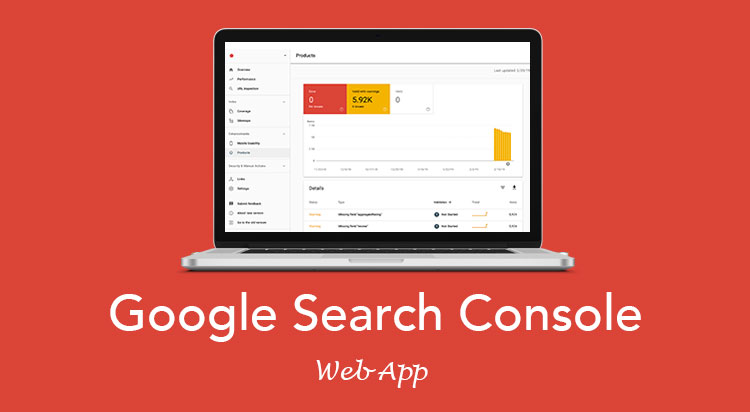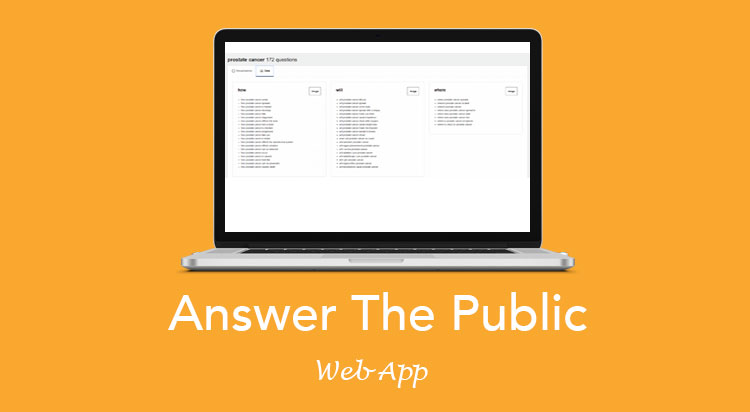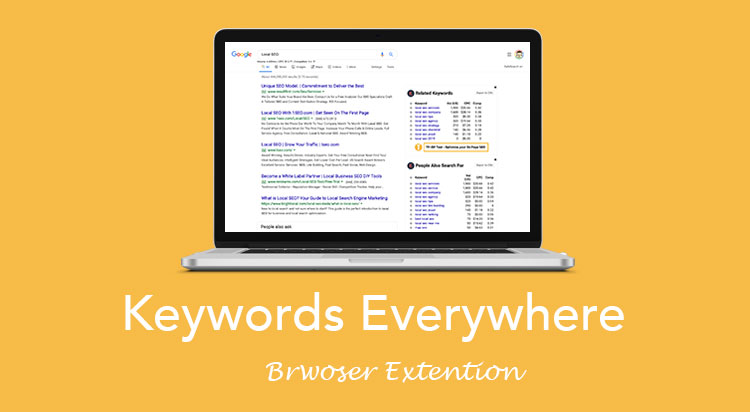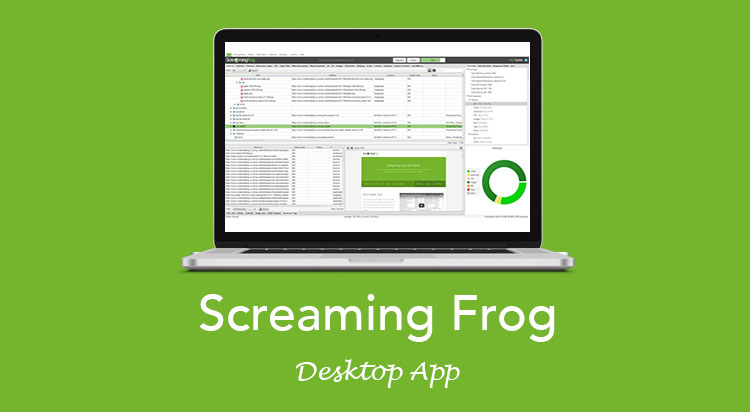
Whether you have been doing SEO for years, or are just getting your feet wet, picking the right tools can be a daunting task. Not only do you need to determine what you are willing to pay for many of these tools, but you also need to make sure the tools you are using will help you get the job done effectively.
It’s easy to spend a lot of money on SEO tools and while there are a lot of paid tools on the market, many which are worth the price tag, there are also just as many freely accessible tools that can be quite beneficial.
We asked over 60 SEO Experts what their favorite free SEO tools were and how they used them.
Below are the top five tools mentioned in our poll but don’t stop with these, there were many more gems referenced by our panel that you won’t want to miss.
#1 – Google Search Console, Web Application

This one may ring a bell for you as it was once called “Google Webmaster Tools”. The GWT has become an incredibly valuable resource for many people beyond the professional webmaster, from marketing and SEO professionals to designers and app developers. Part of the reason they changed the name from Google Webmaster Tools to Google Search Console was to reflect how useful the tool is to more than just webmasters and administrators.
Like the other SEO tools on this list, the GSC is a free service and allows you to learn a lot of important information about your website and the traffic that comes with it. You can learn how many people are visiting your site, how they are finding it, whether this traffic is visiting on a mobile or desktop device, which of your pages are the most popular, etc. Another big plus of the Google Search Console is that it can help you discover as well as fix website errors, submit a sitemap, and create or check your robots.txt file.
Google Search Console is worth taking the time to learn and is quite versatile.
#2 – Answer the Public, Web Application

If you have ever wondered what people are searching for as it relates to your product or services, then Answer the Public is for you.
It provides content marketers with invaluable data about what people are asking online. To use this warrior class query engine, just input a keyword and it’ll begin to seek out questions based on it, generating a graphic with the questions and phrases people use when they search for it. Incredibly useful when crafting social media posts and web content, wouldn’t you say?
The key to gaining and converting traffic is to know what people want, so having a tool that gives you insight into the wants and needs of soon-to-be customers is an invaluable resource.
If you’re not sure what keywords to look for, Answer the Public also gives suggestions using prepositions such as “like”, “versus” and with. That can help with LSI keywords and crafting phrases. This SEO tool is a souped-up engine for crafting SEO content that not only gains traffic and converts it to customers but, also provided information that undoubtedly will ensure your content is more useful and engaging.
#3 – Keywords Everywhere, Browser Extension for Firefox and Chrome

Want a sneak peek at the competition? If so then, check out the browser add on Keywords Everywhere. This powerful plugin provides you with insights into a keywords search volume, its cost per click and its competition.
The add allows you to easily export and download your keywords as a .PDF or .CSV report. Just highlight any set of words on any competitor’s website, right-click, and it generates the keyword data for what you selected.
The add on also aggregates keyword search volume, cost per click, and competition data from Google Analytics, Google Search Console, Majestic, Open Site Explorer and many more. So, you don’t have to worry about having to jump through hoops to get a more comprehensive view of your desired keyword information.
#4 – Screaming Frog, Desktop Software for Windows and Mac

Getting insights into a website’s architecture is key to technical SEO and that’s exactly what Screaming Frog does. It’s a website crawler that offers up data to analyze and audit a website’s onsite SEO. For many in the SEO field, it’s their primary tool for conducting onsite SEO audits.
Unlike most freemium tools, you can get along fine with the free version of Screaming Frog as long as the sites you are crawling are 500 URLs or less.
So, what exactly can Screaming Frog do? Well, let’s take a look at specific features.
Find Broken Links
A nifty way to find 404s and server errors, as they hurt your SEO.
Audit Redirects
It’ll find temporary and permanent redirects, identify the redirect loops and chains.
Analyze Page Titles and Meta Data
Page titles and Meta Data are very important to SEO, it’s kind of like the headlines of a newspaper. This feature helps identify which ones are too long, too short, or just plain missing. It can also find duplicate meta-data, which doesn’t help your SEO game at all.
Discover Duplicate Content
Piggybacking off duplicates this feature will uncover duplicate data across your site and highlights it for you. Best to change it up wherever you can.
There is much more this SEO tool can do, you should take a few minutes and see what’s possible, it’s well worth the free download.
#5 – Google Analytics
If you are not using Google Analytics yet on your website, you are probably in the minority. It’s the most widely used web analytics tools available on the market and best of all, it’s 100% free.
Google Analytics tracks the traffic on your website and the activities of users, from session duration to bounce rate and pages per session to the source of your traffic. Google Analytics is set up to be a comprehensive dashboard tool where you can set goals within the program that make it easier to measure your SEO gains and losses. Your goals could be sales, lead generation, specific page views, etc. Another way this program helps you gain traffic and conversions is by giving you the referral sources and individuals general location, thereby making it easier for you to analyze your traffic by geography.
All the features Google Analytics offers can be a little intimidating for beginners but, Google offers a free tutorial to learn all the ins and outs, including their advanced features. The more high-level capabilities this program has are features like custom visitor segmentation, e-commerce reporting that tracks things like sales and performance, transactions, revenue, and a myriad of other metrics.
This tool is extremely inclusive and advanced, one worth taking the time to learn.
While the aforementioned tools were among the top five tools referenced, there are many more tools mentioned by our panel many that you will want to add to your SEO arsenal. Make sure to check out the responses below.
The Questions:
#1 -What are your favorite FREE SEO tools?
#2 – How do you use these tools in your day-to-day operations?
 #1 – JOSHUA ALLEN (SMARTLINKS)
#1 – JOSHUA ALLEN (SMARTLINKS)
What are your favorite FREE SEO tools?
How do you use these tools in your day-to-day operations?
Paid version is better but the free version does it’s job. Search Operators are nice too if you know how to use them. I like to use Screaming Frog to check the technical side of the site first. It gives you an idea of what needs improvement and what’s been optimized already.
As for search operators, it’s useful to find local links and niche relevant link building opportunities. A lot of people like to over complicate tools. It’s nice to return to the basics to get an insight of how seo tools are used.
 #2 – Andrew Ansley (Andrew Ansley SEO)
#2 – Andrew Ansley (Andrew Ansley SEO)
What are your favorite FREE SEO tools?
How do you use these tools in your day-to-day operations?
Neil Patel’s Tools are great for being free. If I’m on a budget, I use it for keyword research, domain research, and backlink data.
 #3 – Joseph Balestrino (Joseph Balestrino)
#3 – Joseph Balestrino (Joseph Balestrino)
What are your favorite FREE SEO tools?
How do you use these tools in your day-to-day operations?
I use them to help identify common and not so common technical issues. Semrush is great for keyword rankings, a common technical SEO issues. I can also conduct backlink audits easily. Scream frog is more of an advanced tool that helps me parse data to identify issues that automated tools usually miss.
I use them to help identify common and not so common technical issues. Semrush is great for keyword rankings, a common technical SEO issues. I can also conduct backlink audits easily. Scream frog is more of an advanced tool that helps me parse data to identify issues that automated tools usually miss.
 #4 – Kosta Bankovski (NetPeak Software)
#4 – Kosta Bankovski (NetPeak Software)
What are your favorite FREE SEO tools?
How do you use these tools in your day-to-day operations?
1. Every time when I need to quickly evaluate website quality before outreaching, I use SimilarWeb extension (to get an approximate understanding of traffic volume, sources, and geolocation) as the first step of the funnel. Then I check their backlink profile with Ahrefs Backlink Checker (up to 100 backlinks for free) as the second stage of the funnel before outreaching. That’s my quick way how to get rid of low-quality websites and save some time.
2. During each competitor research, I use both of the tools listed above but also add Serpstat when it comes to keywords and visibility across the niche. It helps me to understand what keywords they’re targeting on, either they have any changes in visibility in a few past months, and similar. It’s good information in your pocket, and partially you can receive it for free.
3. When I want to quickly get the data about any On-Page parameter, I use Web Developer extension from Chrome store. I have several reasons for that:
3.1. It has quite a good functionality and combines different useful tools features in one place.
3.2. When I want to get necessary On-Page SEO parameters of an exact page, sometimes it’s not worth to open Netpeak Spider or any other crawler because it takes too long. Browser extensions save your time, don’t forget to use them.
 #5 – Jason Berkowitz (Break The Web)
#5 – Jason Berkowitz (Break The Web)
What are your favorite FREE SEO tools?
How do you use these tools in your day-to-day operations?
SEO Minion has become a favorite for really quick checks on the basic of on-page SEO. During conferences with prospective clients, at the click of a button, I can showcase issues like canonicals, meta data and more.
 #6 – Rintu Biswas (Digital SEO Land)
#6 – Rintu Biswas (Digital SEO Land)
What are your favorite FREE SEO tools?
How do you use these tools in your day-to-day operations?
1. Yoast SEO plugin – If you are using WordPress website or blog, this is the #1 FREE tool you must have. We all know that organic CTR is a big Google ranking factor. This tool actually helps me to adjust my title, description to increase the CTR. Yoast plugin also helps me to optimize my content for search engine and users.
2. Google Search Console – This is a FREE tool given by Google itself. This awesome FREE tool helps me to measure my website’s search traffic and performance, identifying technical issues and fixing those issues. I just love this tool. My favourite feature from this tool is the Performance report. This report shows us Total clicks, impressions, CTR and position. Also, I can see all the keywords my pages ranks for. This data helps me to re-optimize my content. Just awesome.
3. SEMRush – SEMRush is definitely one of my all-time favourite SEO tools. It has a paid plan with lots of awesome features. But the free version is also very good. I find the exact keywords that my all competitor’s rank for. The Site audit feature is very useful. However, I personally like TOP ORGANIC KEYWORDS data. This data shows me the top keywords my competitors actually ranks for in Google.”
 #7 – Grant Brott (Consultwebs)
#7 – Grant Brott (Consultwebs)
What are your favorite FREE SEO tools?
How do you use these tools in your day-to-day operations?
Brightlocal’s local search results checker allows us to check local and organic rankings as if we are in that geo quickly for fast spot checks.
Whitespark’s review handout generator allows quick generation of handout’s to help clients work to get reviews right at the start of a new campaign. Reviews are critical and always one of the hardest things to get businesses to obtain so this is a easy way to get them started because it takes the walkthrough process out of their hands. They just provide this to a customer and let them walk through the review process.
Answer the Public is partly paywalled now but you can still obtain some great questions for your content efforts using the free version.
 #8 – Igor Buyseech (Technacular SEO)
#8 – Igor Buyseech (Technacular SEO)
What are your favorite FREE SEO tools?
How do you use these tools in your day-to-day operations?
SEO Meta in 1 click is one of the few free SEO tools I use on a daily basis. Either by doing SEO audits for my clients/prospects or by doing competition analysis.
It’s a quick fire (as the name says “1 click”) way of getting a good glimpse of how the site is structured and if any major SEO issues are present.
I usually check the Meta titles, meta descriptions (lengths, content), H-tags, alt tags on images and schema.
As soon as I see 5x H1 tags on a single page or lack of description and correct meta titles, I am pretty sure no one has optimized that page correctly, therefor I am confident that my on-page game will work well in that specific niche/topic/keyword.
 #9 – Craig Campbell ( Craig Campbell SEO)
#9 – Craig Campbell ( Craig Campbell SEO)
What are your favorite FREE SEO tools?
How do you use these tools in your day-to-day operations?
For me the best free tool that I’m currently using is Answer the Public, so we all struggle for new content/blog post ideas and after you have done a fair amount you run out of ideas. So Answer the Public will literally give you tons of ideas based around any search term you put into the system.
Pulling this data from forums social media and blogs, and it gives you a nice little visualisation of keywords based on questions that you can then go on and add content about.
It allows you to catch a whole bunch of long tail searches that will bring in traffic to your website, its a great resource and is FREE to use.
 #10 – Jill Caren (2 Dogs Media)
#10 – Jill Caren (2 Dogs Media)
What are your favorite FREE SEO tools?
How do you use these tools in your day-to-day operations?
Google search console helps me optimize for better CTR and gives a great overview of the technical issues holding back a websites success. Link Miner helps me find broken links for potential backlink opportunities as well as to quickly see competitors internal and external links. WebPageTest we use often to track speed issues as well as get a good overview of the file sizes that we can minimize.
 #11 – David Castro (RANKRABBIT SEO)
#11 – David Castro (RANKRABBIT SEO)
What are your favorite FREE SEO tools?
How do you use these tools in your day-to-day operations?
We use this chrome extension daily and is easily in our agency’s list of top SEO tools. The plug-in use’s Google’s Keyword Planner API to provide average search volume and cost per click data for any Google search we make & provides this data right right under the search bar in Google SERPs. Overall, a simple search engine optimization tool that has proven to be a valuable time saver for us.
#12 – Dan Christensen (Pest Rank)
What are your favorite FREE SEO tools?
- Google Search Operators
- Google Search Console
- Google Analytics
- Google Drive (Sheets, Data Studio, Docs, etc).
How do you use these tools in your day-to-day operations?
Search Operators- there are tons that can be used for research and finding outreach prospects, but a simple “site:example.com” can give you a peek at all the indexed pages of a given site quickly.
Google Drive tools are the heart of our client work and reporting. Since Sheets data can be pulled into a Google Data Studio report, and you can theoretically export almost any data INTO sheets, it can easily become an in-depth client reporting tool that showcases a dozen or more different pieces of information from their various sources. A VA can easily be taught how to do all of these things, and your entire reporting structure and process can become a blessing instead of a headache. We’re constantly testing and creating systems that will integrate with Google Drive and its properties.
#13 – Adam Chronister (Enleaf)
What are your favorite FREE SEO tools?
How do you use these tools in your day-to-day operations?
I have been using ScreemingFrog for years now. It was the first SEO tool I used when I started doing local SEO back in 2009. At the time I was able to get along with the free version. It let me scrape sites with 500 pages or less. Still today it’s one of the main tools we use in our audits and never fails to be useful. In addition to this, We have recently been publishing many of our own tools. We have a free website grader, serp preview tool, seo spider simulator, and a headline analyzer.
 #14 – Adam Connell (Blogging Wizard)
#14 – Adam Connell (Blogging Wizard)
What are your favorite FREE SEO tools?
How do you use these tools in your day-to-day operations?
I use this tool to quickly get a good idea of all the questions that are being asked about a particular topic. This helps me plan out a lot of content ideas, and come up with outlines that cover a lot of different long-tail search queries.
 #15 – Andy Crestodina (Orbit Media Studios)
#15 – Andy Crestodina (Orbit Media Studios)
What are your favorite FREE SEO tools?
- It’s the Control + F feature of your browser. “Find on page”
How do you use these tools in your day-to-day operations?
Find on page”” let’s you check to see basic keyphrase usage within one second. If a page doesn’t rank for a phrase, it’s the very first thing you do. It’s step zero. Simply answer the question “Did I use the phrase on the page?”
It won’t show you instances of the target phrase in the title and header (which are important) and it will show you instances of the keyphrase in link text (which is not important) but you’ll still get a general sense of keyphrase frequency in the headers and body.
After this very basic, super simple, free and fast look at the page, you’re ready to go deeper into authority issues, usage of semantically related phrases, depth and length, keyphrase intent alignment, etc.
 #16 – Nate Dame (Propecta)
#16 – Nate Dame (Propecta)
What are your favorite FREE SEO tools?
How do you use these tools in your day-to-day operations?
Quick looks at competitor keywords. Although you can do some for free, SEMrush is paid is definitely worth it!
 #17 – Andy Drinkwater (iQ SEO Ltd)
#17 – Andy Drinkwater (iQ SEO Ltd)
What are your favorite FREE SEO tools?
How do you use these tools in your day-to-day operations?
This is Freemium and the free version only limits you 250 page crawls, but that is it.
The tool is absolutely fantastic for what it is, and even though I use the paid version, it is the only one that I use if I want to crawl a site while on my Chromebook. It is fast and very efficient and doesn’t require lots of setting up to get a crawl going.
I have used this in meetings and had a crawl ready to go through within 20 minutes – it is a fantastic sales tool as well in this way.
I honestly believe every SEO should have this in their SEO toolbox”
 #18 – Andrew Echavarria (JD Digital Marketing)
#18 – Andrew Echavarria (JD Digital Marketing)
What are your favorite FREE SEO tools?
How do you use these tools in your day-to-day operations?
SEO Powersuite has a tool for just about every aspect of SEO. Their keyword analysis, website analysis, and link assistant features are extremely versatile and useful when comparing data across other industry tools (SEMRush, Ahrefs).
I use their free tools on a daily basis for content analysis and optimizations, link building, and competitor backlink analysis.
 #19 – Chris Edwards (Data Driven Labs)
#19 – Chris Edwards (Data Driven Labs)
What are your favorite FREE SEO tools?
How do you use these tools in your day-to-day operations?
Google Search Console – This is our favorite tool. It is basically a peak into Google’s backend. You can easily find keywords you are ranking for that you never would have thought you ranked for. You can also see how many impressions you are getting for keywords and where you rank on average. From here you can make decisions to improve your SEO.
The SEO Framework – This is a newer SEO plugin for WordPress. It is very similar to the long standing champ, Yoast SEO, however, this one has a much cleaner and easier to use interface. It also boasts no-ads, keeping it nice and clean. In addition, it has less bloat than other SEO plugins and runs super quick on any installation. It includes everything you need to properly SEO your website for free, not forcing you into paying for more. The other thing I love is it will import your settings from Yoast.
Google Search Auto-Fill – This is simple, just open an incognito window and start to type in your keyword. You will see from the auto-fill what people are searching for. This helps with building out long-tail keywords for a site.
Local Listings Score – We use this to do a quick check to see what citations a client has already claimed. It is easy to find places you need to go claim your listing if you are getting started.
 #20 – Sandy Edwards (Data Driven Labs)
#20 – Sandy Edwards (Data Driven Labs)
What are your favorite FREE SEO tools?
How do you use these tools in your day-to-day operations?
This site runs a quick audit that allows us to help highlight key issues for potential clients during the sales process and provide amazing screenshots during the process.
 #21 – Keith Evans (Local SEO Services)
#21 – Keith Evans (Local SEO Services)
What are your favorite FREE SEO tools?
How do you use these tools in your day-to-day operations?
As a Chrome extension, the Fat Rank keyword checker allows me to go to any site, type in keywords and instantly see where it ranks. I use it more as a sales tool or prospecting. With a potential customer I can prepare a list of keywords, pages, and positions before the meeting. While prospecting on Google, I can quickly type in some phrases to see if there is a SEO opportunity. Works slick. You can check live in front of a customer too.
 #22 – Tim Fitzpatrick (Rialto Mobile Marketing)
#22 – Tim Fitzpatrick (Rialto Mobile Marketing)
What are your favorite FREE SEO tools?
How do you use these tools in your day-to-day operations?
SEO Meta in 1 Click is a super easy to use chrome extension that gives you a great look some of the main on-page seo elements for a website. You can use the data to make necessary updates to improve the on-page SEO elements for any web page. Ubersuggest keeps adding more and more features for a free tool. You can get all kinds of SEO data with Ubersuggest like domain overview info, top pages on your site, keyword suggestions, content ideas, and backlink info. It’s one of the most extensive free SEO tools out there.
 #23 – Jessica Foster (Keys And Copy)
#23 – Jessica Foster (Keys And Copy)
What are your favorite FREE SEO tools?
How do you use these tools in your day-to-day operations?
The obvious first choice for my favorite SEO tool was Screaming Frog (followed by Keywords Everywhere), but this a pretty well-known tool in the business. So, as an SEO content writer, I want to mention the Hemingway App, which is a great tool for creating content. Though not explicitly an SEO tool, this tool helps you with the readability of your content. It also identifies complex sentences, passive voice, and the like. If you want your content to resonate with your target audience, part of that involves “speaking their language”. This app helps make your content more concise and brings it down (or up) to the level of your audience’s understanding. For instance, the complexity of your content that’s meant for small business owners will be very different than that of content that’s written for SEO pros. It’s helpful to use this tool to set a standard of complexity (“Grade”) based on your target audience and then advise that your writers tweak the content to match.
 #24 – Chris Giarratana (Strategy Beam)
#24 – Chris Giarratana (Strategy Beam)
What are your favorite FREE SEO tools?
How do you use these tools in your day-to-day operations?
I use Moz Link Explorer on a daily basis to check links that I plan to reach out to- this is an essential part of the link prospecting and validating process.
I love Keywords Everywhere because it provides a quick and easy way to check keywords right from Chrome. The results are not as accurate as Ahrefs or Moz, but this tool provides keyword research on the fly, and serves as a great first round of checks before diving into another tool.
Answer The Public is an essential piece of the methodology I use to create great content. I use Answer The Public to find questions associated with a keyword, plus the tool gives insight that can help direct/mold content.
Screaming Frog is a great SEO Spider that crawls sites to deliver essential information for audits and other tasks. Great tool, the free version has a 500 URL limit, and the paid version is amazing… especially the visualization tools!
 #25 – Anna Gondzick (ITEC MEDIA)
#25 – Anna Gondzick (ITEC MEDIA)
What are your favorite FREE SEO tools?
How do you use these tools in your day-to-day operations?
Check traffic source & CROs
 #26 – Steve Guberman (The Walt Disney Company – Parks and Resorts)
#26 – Steve Guberman (The Walt Disney Company – Parks and Resorts)
What are your favorite FREE SEO tools?
How do you use these tools in your day-to-day operations?
I use it all day long on our sites to check a page for Keyword Density issues
 #27 – Josepf Haslam (Education Dynamics)
#27 – Josepf Haslam (Education Dynamics)
What are your favorite FREE SEO tools?
How do you use these tools in your day-to-day operations?
Keyword exploration for semantic search, People also ask, and answer boxes
 #28 – Eagan Heath (Get Found Madison)
#28 – Eagan Heath (Get Found Madison)
What are your favorite FREE SEO tools?
How do you use these tools in your day-to-day operations?
Researching keyword volume and ranking opportunities, then optimizing pages for them.
 #29 – Sam Hurley (Optim-EYEZ)
#29 – Sam Hurley (Optim-EYEZ)
What are your favorite FREE SEO tools?
How do you use these tools in your day-to-day operations?
Awesome for analyzing site speed and pinpointing every contributing factor in load time (critical not only for SEO, but UX — which also loops right back around to SEO!)
 #30 – Kevin Indig (G2)
#30 – Kevin Indig (G2)
What are your favorite FREE SEO tools?
How do you use these tools in your day-to-day operations?
Keyword everywhere browser extension is a great tool when doing keyword research or trying to recreate the user journey. It instantly helps you to see the demand behind a keyword.
Chrome Lighthouse is a very underestimated technical SEO tool that helps you to assess page speed, DOM rendering problems, and assess the mobile version of a site.
Web Sniffer is a small but mighty tool to catch redirects, including redirect chains and loops.
 #31 – Stephen Jeske (Market Muse)
#31 – Stephen Jeske (Market Muse)
What are your favorite FREE SEO tools?
How do you use these tools in your day-to-day operations?
Free SEO tools aren’t a big part of my marketing stack. However, here I use MozBar, SimilarWeb, and ScreamingFrog SEO Spider on a regular basis. MozBar and SimilarWeb are helpful when doing outreach as they give me a feel for the quality and importance of a site; more than I can gain with a visual inspection. ScreamingFrog SEO Spider is a tool I use often, though not day-to-day. I particularly like using it to find content that buried deep in my site. This can happen to blog post over time, so it’s good to keep an eye on it and take action to bring those older posts closer to the top of the site architecture.
 #32 – Kristopher Jones (LSEO.com)
#32 – Kristopher Jones (LSEO.com)
What are your favorite FREE SEO tools?
How do you use these tools in your day-to-day operations?
I use both for data mining and benchmarking SEO strategy.
 #33 – Steven Kang (SEO Signals Lab)
#33 – Steven Kang (SEO Signals Lab)
What are your favorite FREE SEO tools?
How do you use these tools in your day-to-day operations?
Built With is great for analyzing what technology and plug-ins are currently being used on any said website. I look for a number of specific technology signatures when pre-qualifying a site. After due diligence, I reach out to a prospect as it’s much easier to start a conversation for my virtual pages SaaS SEO product when you have the data in front of you.
 #34 – Taras Kim (Wellknown Agency)
#34 – Taras Kim (Wellknown Agency)
What are your favorite FREE SEO tools?
How do you use these tools in your day-to-day operations?
Woorank i use to get information about website. It gives all the required information to see what needs to be fixed, mostly for onsite SEO. Google Keywords Planner i use for keyword research. In case of paid version MOz is better, i think, but for free version and accuracy Google Keywords Planner is first choice.
 #35 – Jill Kocher Brown (Jumpfly)
#35 – Jill Kocher Brown (Jumpfly)
What are your favorite FREE SEO tools?
How do you use these tools in your day-to-day operations?
It’s great for article topic ideation and for ideas about what questions to answer within a long-form content piece. I usually end up running the questions and phrases through Google Keyword Planner to identify the ones that have the highest search demand, also.
 #36 – Noah Lopata (Epidemic Marketing)
#36 – Noah Lopata (Epidemic Marketing)
What are your favorite FREE SEO tools?
How do you use these tools in your day-to-day operations?
I use this tool every day to get a quick look at page titles, meta descriptions, H Tags, Schema, Page Speed, Keyword density and more. It’s a Chrome plugin and very easy to use even for a beginner. This tool is my goto when doing a quick audit for a potential client so they can see all of the on-page elements that need attention.
 #37 – Leon Lysak (Elevated)
#37 – Leon Lysak (Elevated)
What are your favorite FREE SEO tools?
How do you use these tools in your day-to-day operations?
SEO Meta in 1 Click is an invaluable tool for quickly inspecting a page’s meta data, anchor text, h tags, alt tags, canonicals, and more. We use this tool when conducting quick audits to gather data instead of running a time-intensive full site-crawl with a paid tool such as Screaming Frog. KeywordsEverywhere allows us to conduct keyword research with speed and efficiency. It’s a browser overlay that works in the SERPs and Google’s keyword planner, highlighting search volume and PPC data for every keyword. You’re able to “star” a keyword and add it to a keyword group, that’s able to be exported into a .csv or copy/paste the entire keyword group to wherever you need to dump your data with ease. Multi-Highlight isn’t an SEO tool per-se but we definitely use it as one. This chrome extension allows us to highlight several different “words” or “phrases” and a variety of colors and the tool will highlight them in every page we visit. What this allows us to do is quickly visualize how our competition is using a target keyword and keyword variation placements within their pages, allowing us to spot the level of “optimization” we’re dealing with on page 1 so we can adjust our SEO strategy accordingly.
 #38 – Blake Marcher (Marcher Internet Marketing)
#38 – Blake Marcher (Marcher Internet Marketing)
What are your favorite FREE SEO tools?
How do you use these tools in your day-to-day operations?
I use SEO Review Tools Website Authority Checker to check my clients Domain Authority scores. I’ll typically use this tool when I first starting working with new SEO clients. This tool is great for gaining insight on where clients websites are currently at (in terms of domain authority) and what it will take to get them to the next level.
 #39 – Schieler Mew (CS Design Studio)
#39 – Schieler Mew (CS Design Studio)
What are your favorite FREE SEO tools?
How do you use these tools in your day-to-day operations?
My favorite SEO tool for 2019 after the major report on Google’s 0-Click Search results released by https://sparktoro.com/blog/google-ctr-in-2018-paid-organic-no-click-searches/, is this Schema Markup Generator.
This generator provides JSON TLD for How-To and FAQ panels, which are great additions to any website’s goal to gain 0 position search ranking.
We use this tool on a daily basis to ensure our clients are taking advantage of schema markup on all of their domain properties. Through the use of schema in local niches, we have found that it gives us a competitive edge in contrast to our competitors who are not usually using it.
With this specific tool, the creators have already added in a generation selection for How To Guides & FAQ’s – Google’s latest available feature snippets since the June 03, Core Algorithm Update. While there is plenty of documentation on these snippets, this is the most comprehensive tool for currently generating them.
 #40 – Rich Missey (Groupon)
#40 – Rich Missey (Groupon)
What are your favorite FREE SEO tools?
How do you use these tools in your day-to-day operations?
Link redirect trace: Identify and track down redirects & redirect chains
GSC: Identify problems, track performance
Analytics: User behavior insights
Structured Data: Markup validation
 #41 – David Montalvo (Unreal Web Marketing)
#41 – David Montalvo (Unreal Web Marketing)
What are your favorite FREE SEO tools?
How do you use these tools in your day-to-day operations?
This tool gives you suggestions on questions web users are asking based on your keywords via Google and Bing. We use this to help with content placement on these search engines. By creating unique content for a specific topic/question, you can have your article appear under Google’s featured snippets section before the FIRST organic listing. Optimizing for long-tail key phrases is critical when It comes to organic traffic and bounce rates. When a user engages with your content, they will spend more time on your website, and your bounce rates will drop, translating to a strong organic presence.
 #41 – Jason Mun (Overdose Digital)
#41 – Jason Mun (Overdose Digital)
What are your favorite FREE SEO tools?
How do you use these tools in your day-to-day operations?
“Keywords Everywhere:
Nice little Chrome extension that displays keyword search volumes, related keywords and people also ask query data. Completely FREE and exportable to CSV. Great for those ad hoc keyword research tasks.
Answer the Public:
Longtail and content research gold mine. Using this in conjunction with Keyword Everywhere is awesome. This tool gives you content ideas for days!
Google Structured Data Testing Tool:
I strongly believe structured data is the future of search. With clients predominantly in the e-commerce space, I use this on a daily basis to test the implementation of schema markups. To save time, create a browser bookmarklet (h/t to Glen Allsop).
WebpageTest:
Speed, speed, speed and more speed. With Google moving to mobile first on all things, ensuring that the website is optimized for speed is so important. Google PageSpeed test is good but Webpagetest is more comprehensive and have more granular reporting and recommendations.
Google Search Console:
The staple of any SEO, I’m in there almost everyday. Tracking clicks, impressions and average position trends. Comparing weekly, monthly and yearly data. Index coverage is great, monitoring the indexing levels of the website.
Link Redirect Trace:
Another great Chrome extension. Check HTTP statuses, indexation and crawlability of webpages. Identify redirect chains, JS redirects with ease right from the browser.
Google Mobile Friendly Test:
Testing a website for mobile friendliness is only one aspect of it. Using this tool to test JS rendering is the main use in my day-to-day SEO life. Plugging pages in to the tool and analysing the HTML rendered code is the main use.
Chrome Dev Tools:
View page source, inspect element, DOM inspection, mobile testing and more. Also use this to grab Xpath code for custom scraping of data, etc.
Wayback Machine:
Sometimes, current data points just don’t make sense. It always pays to use Wayback Machine to see what the website has done in the past. Great for investigation post website migration regressions and penalty investigation work.”
 #42 – Toshy Penny (Logical SEO)
#42 – Toshy Penny (Logical SEO)
What are your favorite FREE SEO tools?
How do you use these tools in your day-to-day operations?
To drive organic traffic you need to produce quality content that targets the right keywords.
MozBar allows you to examine a keyword’s competition. Enable the tool in Google’s search engine results page and compare the domain authority (DA) of the websites that rank for your target with your own website’s DA. Your domain authority should be in the realm of what you see in the competition.
Use KeywordTool.io to find keywords in your industry. Test various searches, examine the results, and find relevant keywords.
Paste those keywords into SearchVolume.io and you’ll find how often each keyword is searched.
If you know 1) a keyword’s search volume, 2) it’s competition, and 3) you can verify it is a relevant search for your industry, you’ve got an excellent target.
Write content to target the keyword, give it some time, and eventually you’ll start showing up in search engine results and hopefully drive some traffic!
 #43 – Dicky Phillips (Media Results)
#43 – Dicky Phillips (Media Results)
What are your favorite FREE SEO tools?
How do you use these tools in your day-to-day operations?
For starters, Answer The Public has become an incredibly valuable tool in terms of creating content that is conversational in tone. It provides me with many variations of a root keyword using questions and prepositions.
With the increased importance for quicker and responsive websites on mobile devices, the use of a tool like WebPageTest.org allows me to dig into every single request or element that may be slowing down a client’s website. Visually, the waterfall report provides me with a clear picture of load priority, time to first byte and DOMInteractive (in seconds), as well as helps me discover broken 3rd party script that can be cleaned up.
Search Console has become my most relied upon tool in regards to SEO. It allows me to do keyword research or analysis, backlink audits, and also allows me to recognize crawlability issues. From a Technical SEO perspective, Search Console is irreplaceable.
 #44 – Eric Plotts (Viral Marketing)
#44 – Eric Plotts (Viral Marketing)
What are your favorite FREE SEO tools?
How do you use these tools in your day-to-day operations?
SEOquake and SEMrush are 2 tools I’ve had in my arsenal since day 1. I started with the free version of SEMrush and recall it working quite well with SEOquake. So I went back and tested the free version, and it still works beautifully when paired with SEOquake. Together they provide tools like a site audit, backlink research, social signal research, keyword density, and a ton of other cool features. You can analyze your site and your competition dominating the search engines, compare the results, figure out why your competitor is out ranking you, and begin implementing and taking steps to counter your competition and up your ranks in Google.
You can take it a step further with SEMrush. You’ll have to put in your Credit Card info and just make sure you set a reminder to cancel the 7-day free trial. In SEMrush you can spy on ad copy to decide your metas. I type in a keyword, click on “”Advertising research”” and look at the Ad History. This will give you all data including ad copy being show for the keywords. I look for trends in ad copy being shown in Google. A trend indicates profitability. Profitable ads usually have a high CTR, and with the importance put on CTR nowadays and it being a clear indicator to Google whether your result is worthy to be shown for a query, you SHOULD be looking at profitable ad copy and using it to write your meta title and description. This is one of the most impactful features of SEMrush and what sets it apart from other aggregators.
 #45 – Sankar Ponnusamy (Searchly Only)
#45 – Sankar Ponnusamy (Searchly Only)
What are your favorite FREE SEO tools?
How do you use these tools in your day-to-day operations?
Keywords Everywhere is one of my best SEO tool picks. It comes with a chrome plugin which allows you to see search volume, keyword competition, and CPC info right on the browser, without even log in. It can also provide keyword data from youtube searches. I have this tool installed on my browser and every time i search for anything…boom..I get all the valuable data on my screen.
Screaming Frog: Although i recommend buying the premium version, the free version can be of immense help in auditing the site for technical issues. Crawl the site and look for issues such as broken links, redirects, 404 errors, content duplication, analyze page titles and many more.
 #46 – Tyler Rice (Animas Marketing)
#46 – Tyler Rice (Animas Marketing)
What are your favorite FREE SEO tools?
- MOZ Keyword Explorer
- MOZBar
- SEMRush (Free search on )
- Google Keyword Planner
How do you use these tools in your day-to-day operations?
I use the Keyword planning tools anytime I would like to craft keywords and headlines for optimized blog articles.
 #47 – Robbie Richards (RobbieRichards.com)
#47 – Robbie Richards (RobbieRichards.com)
What are your favorite FREE SEO tools?
How do you use these tools in your day-to-day operations?
Keywords Everywhere – A handy free Chrome extension you can use to pull in search volume, CPC and competition data for keywords directly into the SERP. You can even use it grab metrics for terms discovered in third party applications like Answer The Public. If you don’t have the budget for a paid tool like SEMrush or Ahrefs, this can give you some good directional data.
Scraper – another handy chrome extensions I use for a number of tasks. I cover a lot of them in this organic traffic guide, but one of my favorite SEO use cases is extracting question-based keyword ideas at scale from the People Also Ask box in the SERP. I cover my process in the link I included above.
Answer The Public – I use this tool to find loads of question-based keywords and comparative terms that are great for sales enablement and mid-funnel topics.
Merge Words – a little-known tool you can use to quickly build keyword combinations that you might not have ever thought of. Great for ecommerce when you’re looking for new modifiers with search volume that your competitors are not targeting.”
 #48 – David Sanchez (Mammoth Web Solutions)
#48 – David Sanchez (Mammoth Web Solutions)
What are your favorite FREE SEO tools?
How do you use these tools in your day-to-day operations?
It’s perfect for generating quick website audits for your leads, to give them a broad overview of their website issues.
It includes an integrated Majestic and Moz site audit, and shows information about schema, header tags, website copy and structure, and also main keywords the website is ranking for.
Best of all, it is white labeled to list your contact information and logo, telling the client to call you for help!”
 #49 – Kristine Schachinger (Sites Without Walls)
#49 – Kristine Schachinger (Sites Without Walls)
What are your favorite FREE SEO tools?
- ScreamingFrog
- WebPageTest.org
- GTMetrix
- Pingdom
- Google Analytics
- Google Search Console
- Google Schema Mark-Up Testing Tool
- Google Lighthouse
- Google Page Speed Insights
- Google Developer in Chrome
- Google GA Debugger
- Google Tag Assistant
- Web Developer
- Panguin
- Observe Point Tag Debugger Chrome Extension,
- SeeRobots Chrome Extension
- Chekbot Chrome Extension
- META SEO Inspector Chrome Extension
- Link Redirect Checker Chrome Extension
- Robots.txt Viewer Chrome Extension
- JSONLD Tester Chrome Extension
- Omnibug Chrome Extension
- Answer the Public
- Google Trends
- Google’s Mobile-Friendly Test,
- Spider Test Tool
How do you use these tools in your day-to-day operations?
SEO Audits especially when there is a technical focus.
ScreamingFrog for small sites and quick looks,
BuiltWith to understand what the site is well built with :),
WebPageTest.org, GTMetrix, Pingdom (have to search for the free, but it is there),
I am sure there are more, but that covers the ones used most 🙂
 #50 – Cody Schuldt (Spartan Digital)
#50 – Cody Schuldt (Spartan Digital)
What are your favorite FREE SEO tools?
How do you use these tools in your day-to-day operations?
Airtable is basically the hybrid offspring of an Excel spreadsheets and a SQL database, so we use it for a multitude of different things. For example, a portion of our business is focused on lead generation for home service companies, so we use it to manage account information and checklists of our internal processes for optimizing Google My Business listings, websites and off-site SEO essentials. There are drop downs for status updates of tasks, check completed tasks off as we move through them and making notes on items if we run into issues or notice something that needs attention.
Our agency primarily focuses on local SEO for both the medical and home services niches, so geographical research for the cities we’re targeting to rank in is very important. Having a bunch of Excel spreadsheets to search through for data like population, points of interest, zip codes, surrounding suburbs, etc. can become a messy job. We use Airtable to organize all of that research we have accumulated over time and for I’ve it has streamlined our on-boarding research workflow quite well. I have really grown to appreciate the simplicity of Airtable and how easy it is for anyone on our team to take a look and immediately be able to get a progress report on any project or grab the data they need without wasting time sorting through multiple spreadsheets.
 #51 – Roberto Severino (Adword Vigilante)
#51 – Roberto Severino (Adword Vigilante)
What are your favorite FREE SEO tools?
How do you use these tools in your day-to-day operations?
All these tools help me to understand the bigger picture of what’s happening with the site when I do my technical SEO audits.
Screaming Frog lets me crawl through up to 500 pages without having to pay for a subscription, for example.
The Structured Data Testing Tool from Google is also super helpful when it comes to diagnosing issues with schema markup on client sites, and when I’m working for companies.
Entire Web allows me to easily submit sites to multiple search engines at the same time.
Google Search Console gives me a way to make sure that the clients I’m working on aren’t getting their pages penalized with Google Analytics able to provide me with more clues on the user behavior and conversions. Finally,
HARO Queries are pretty awesome for building credible backlinks without having to spend one penny, though it does take a little time to start working.
 #52 – Sean Si (SEO Hacker)
#52 – Sean Si (SEO Hacker)
What are your favorite FREE SEO tools?
How do you use these tools in your day-to-day operations?
Google Analytics and Search Console are must-haves for all SEOs and we use these tools every day to monitor our site’s performance in the search engines and to check if there are any errors in our website with regard to how Google views it.
Search console is also a valuable tool for letting Google know which pages they should visit and which of them they should avoid. Search console has a lot more features but we use the ones I just mentioned on a day-to-day basis.
Meanwhile, we use screaming frog almost every day just to understand the micro details of our website. From page titles to non-indexable pages, screaming frog is the best crawler in the market. However, the free version only crawls up to 500 URLs. If you have the budget, I highly recommend getting the paid version.
 #53 – Bill Slwaski (Go Fish Digital)
#53 – Bill Slwaski (Go Fish Digital)
What are your favorite FREE SEO tools?
How do you use these tools in your day-to-day operations?
Google Search Console is my favorite free SEO Tool. I like to look at the performance section at Search Results, sorted by Pages, and then look at the queries that those pages were found for, because they can often be found for more than one query. I like seeing how many search impressions each of those queries is found for compared to the amount of clicks. That can influence me to optimize a page for a secondary term, depending upon where that secondary term appears in search results. It’s worth spending the time seeing what those queries are, and where they appear.
URL Inspection Tool in Google Search Console
I look for search terms that have high search impressions and low search clicks, and find the pages that rank for those terms, and update the titles and meta descriptions to encourage more clicks by making those more engaging, and once those changes are made, I submit the URLs using the URL Inspection tool. That appears to be quickly updating rankings for those pages in Google with new titles and snippets.
 #54 – Michal Suski (Surfer)
#54 – Michal Suski (Surfer)
What are your favorite FREE SEO tools?
How do you use these tools in your day-to-day operations?
The most important free SEO tools for me are Keywords Everywhere, SEO Quake, Alt Text Checker and I wouldn’t be myself if I did not mention Surfer’s free plan. Those tools are used to gather data which helps to make more accurate decisions and save some time on a daily basis. Some pieces of information can be obtained manually but who has time for this?
Keywords everywhere is a simple plugin to Chrome that tells you what are related keywords to your search with their search volume as well as details about searched query directly in Google input. It’s great for getting information about your keyword really quickly.
SEO Quake is a well known on page checker which I use since I started doing SEO. The quick and reliable plugin makes a simple audit of the page. It extracts Meta tags, canonical, headings, checks for missing img alts, schema, helps to analyse robots.txt and much more. Great for a quick overview.
Alt Text Tester plugin for chrome is an awesome time saver. Once you know that some alts are missing it is hard to find out which image is causing the problem. This plugin will go through your page and highlight images that are missing alts. A huge thing for me, I was doing this kind of tasks manually before.
Last but not least – free version of Surfer. It is what we had in the very beginning. Pretty useful for a quick insight about the top ten ranking pages. Detects optimization issues, words and structure elements missing, shows the correlation and all the data in a visual way on the chart for more than 100 factors.
 #55 – Steve Toth (SEO Notebook)
#55 – Steve Toth (SEO Notebook)
What are your favorite FREE SEO tools?
How do you use these tools in your day-to-day operations?
I start by typing in a question or keyword, then I look at the autocomplete, people also ask and related searches. It’s kind of a choose your own adventure approach to keyword research vs. relying on a tool to spit out the same suggestions everyone else is getting. I’ll also use search operators like intitle: and inurl: if I’m looking for something very specific.
 #56 – Ernest Turner (Ottaway Digital Communications)
#56 – Ernest Turner (Ottaway Digital Communications)
What are your favorite FREE SEO tools?
How do you use these tools in your day-to-day operations?
Keywords Everywhere makes keyword research so much faster! I use it absolutely every day. It shows the LSI right near the top of the SERP and gives a comprehensive list of semantically related keywords. It also lets you see competition and CPC right underneath the Google search bar.
 #57 – Aaron Whyte (Mebsites)
#57 – Aaron Whyte (Mebsites)
What are your favorite FREE SEO tools?
How do you use these tools in your day-to-day operations?
Serpworx we use to quickly get a snapshot of a websites overall strength. Additionally, we can quickly find the main keywords/pages that are already indexed. We look for keywords that are at that prime for a quick boost to get them into the next tier of rank, such as page 2 to page 1, position 6 to top 2.
Lastly, serpworx is an easy way to find where competitors are getting most of their traffic from, via the semrush integration. We then target these keywords to choke off our competitors source of funding by targeting these keywords.
Cora is our number one onpage tool and likely one of the most trusted over in-house statistical tools we have. We use Cora on a central vps which runs on an automation python script. Our staff feed the urls, location and keywords into a UI and Cora runs these all day and night for us.
We run Cora on every page on the website we are working on. Additionally, we run it on all citations, social pages, blogs, web2.0, pbns, guest posts and 1st and 2nd tiers. Essentially everything linking to our money site gets Cora analysis-ed.
In practice we make less adjustments at a time the better the page rank is in the serps. We work from the road map suggested items first and cross check those changes with the top 10 sites to see how they fit in.
 #58 – Charlie Williams (Chopped)
#58 – Charlie Williams (Chopped)
What are your favorite FREE SEO tools?
How do you use these tools in your day-to-day operations?
If you’d told me a few years ago that I’d be recommending Google’s tools as the best free options out there I wouldn’t have believed you. But times, and the market changes.
Search Console is one of my most-used tools, free or paid. The enhanced second version of the interface gives invaluable information on organic visibility & success in the Performance report (especially when using the API) and vital detail on what Google is making of your pages in the Coverage report. Analyzing the data in the coverage report is a huge part of my technical reviews. I’m sure I don’t need to explain why Page Speed Insights data (especially combined with Chrome Developer tools) is great for improving site speed.
You can sign up for a free version of Ryte’s Content Success tool which has a couple of functions but my favorite is using it for optimizing copy to find other topic variants to include, which can reveal subsections you’ve missed out. You can upgrade to the full suite should you want more detail (and the other parts of the suite). For testing different title tag and meta description ideas, CTR.tools is a fast & free gem of a tool.
Similarly, if you have a small site (less than 500 URLs), the free version of Screaming Frog’s SEO Spider can give you full crawl analysis without paying a thing (disclaimer – I teach training sessions on the SEO Spider and so am biased!)
If you’re feeling more adventurous, Google Sheets can perform all kind of SEO tasks. An excellent place to start is Rank Tank (https://www.ranktank.org/free-seo-tools/) which has templates for all kinds of things from keyword ranking checks to unlinked brand mentions. A full tool within the suite is Infinite Suggest which does a great job of scraping Google’s autocomplete suggestions.
I use several paid keyword tools for a lot of my research, but still find myself using several free options to supplement paid data. These include Answer The Public for questions, prepositions & comparisons, Keyword Tool for looking at Amazon & eBay searches and Keyword Everywhere for data inside SERPs and other tools. For tagging keyword ideas, Jono Alderson’s Term Tagger is an incredible shortcut.
 #59 – Joe Williams (Tribe SEO)
#59 – Joe Williams (Tribe SEO)
What are your favorite FREE SEO tools?
How do you use these tools in your day-to-day operations?
Keywords Everywhere allows non-Google advertisers to get keyword search volumes for free. On top of that, it conveniently adds search volumes to where you need it most like Google Search, Google Keyword Planner and Google Search Console.
Google Search Console has so many applications. You can use it for technical SEO auditing. For example, you can diagnose which URLs have errors and which URLs are not indexed on Google. On top of that, it will provide insights into ways to fix the issues. It’s also great for identifying low hanging fruit landing pages. These are pages that rank for interesting keywords but not as high as you would like and with a little extra optimization, you could rank a whole lot better.
Shameless plug! Google SERP Generator is a tool we created to show how your title and meta description tags will look in Google’s search results. It helps ensure you are within the size constraints. And by visually previewing what your snippets of text will look like, you can ensure they are engaging and appealing for your target audience to click on.
The Yoast SEO plugin is stable for WordPress website owners that want to take their SEO further. It helps with onsite SEO, by also offering a SERP preview tool and it has some nice technical features like being able to add canonical and meta robots tags.
Ahrefs has been a premium backlink checker for some time but not everybody knows they have a free version of the tool which is limited to 100 results. It’s still very useful if you can’t get your hands on the paid version.
 #60 – Dan Parker (Loveto.link)
#60 – Dan Parker (Loveto.link)
What are your favorite FREE SEO tools?
How do you use these tools in your day-to-day operations?
I use this tool to check the history of a website, this is a crucial step in verifying whether or not auction domains are worth bidding on. The tool allows me to check the entire history of a website to see if the domain has ever been used as spam content. The tool also allows me to restore websites to what they used to be.
Summing It All Up
There are plenty of tools out there to better your online marketing strategy and beef up your SEO practices. It’s all a matter of searching and experimenting.
We at Enleaf are happy to offer our insights into SEO best practices and give you a few shortcuts along the way. We even offer a few free SEO tools ourselves and know that every little bit helps. A lot of marketing is trading information and applying it, it’s a creative comprised of learned experience and technical know-how.
What Do You Think?
So, let us know what you think of our top free SEO tool list and leave your answer to our 2 questions in the comments.
If you have a nifty tool we’ve missed lets us know and we will add it to the list.



